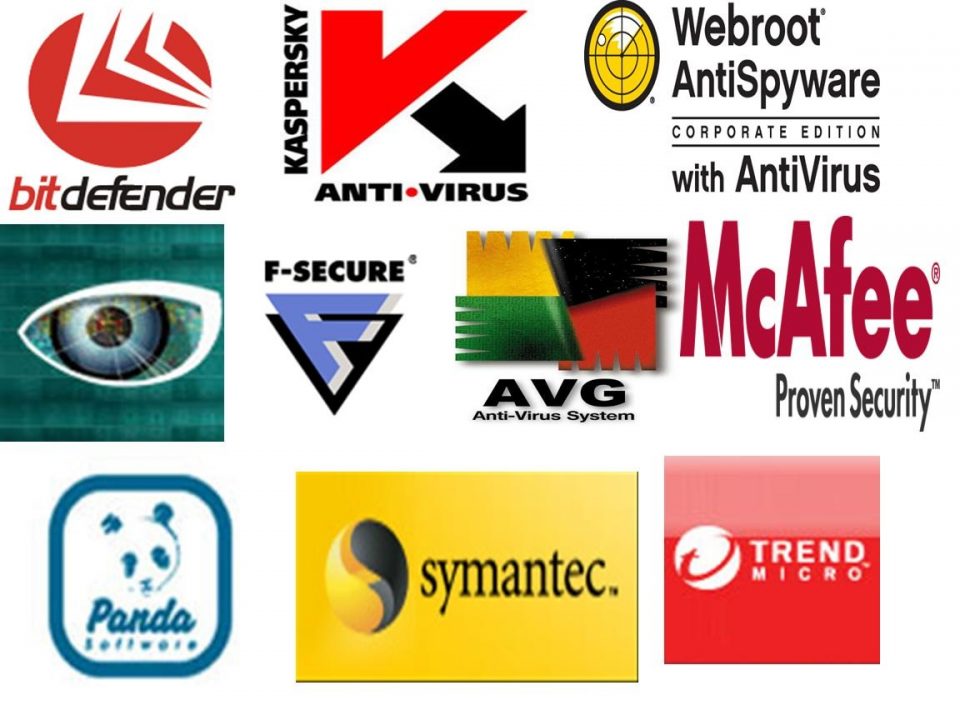
With the number of computer users growing exponentially every year, several security software and anti-malware applications have come up in the market. There are some eight different free antivirus programs today, which dominate the anti-malware protection market.
It’s important to understand that each antivirus provider releases new versions almost every year, so the best, no. 1 antivirus software can change every year. The popularity of an antivirus product does not necessarily reflect its superiority over others, since some old players can capture the market due to their early arrival. This is why a good software of recent arrival takes more time to come on an equal footing with the old ones. Moreover, some vendors use better marketing strategies than others, even if they are don’t provide the best product.
As of 2017, the three applications that we would NOT recommend are ZoneAlarm, Adaware and Panda. These programs though are good at working but they either consume too much CPU or RAM, or they might give false positives like stopping good programs from running. This is especially true with ZoneAlarm even though it offers excellent firewall. ZoneAlarm actually stands better than Adaware and Panda; it uses a licensed antivirus component of Kaspersky. Qihoo 360, Adaware, Panda and Comodo can although run smoothly but don’t give the superior protection as other free anti-malware.
The real competition in the free antivirus market is between Bitdefender, AVG, Avast and Avira. Sophos Home is also one good antivirus solution that provides excellent protection and is free of cost. Bitdefender (2014) also offers around 98% business grade security at no cost. But it has a very simplistic user interface and you cannot change most of its settings. Online-privacy conscious users can find this very unsettling. Bitdefender and Sophos are best suited for a casual home user who doesn’t want to be bothered with customizing settings and doesn’t have sensitive or confidential information on their computer.
The three top free antivirus solutions are close to each other and most users report equally good experience with all the three – Avast, AVG and Avira. These three applications consistently get excellent reviews from all the testing labs. All three can be used for home or small business computers.
Avast, however, seems to lead the pack by just a few steps with AVG being a very close runner up. Avast has excellent malware blocking, rootkit scans, phishing protection, WiFi inspector, advanced password management besides lots of bonus and premium features, though some of them require separate purchase.
AVG lags a little bit due to its relatively lagging anti-phishing feature besides the bonus goodies not as good as Avast. Nevertheless, AVG still stands out against all other competitors. Avira comes third due to relatively poor blocking of malicious URLs and trackers. Virus scans also take a little longer with Avira and sometimes consume more RAM.
So, the best free antivirus software for a Windows PC in 2017 is the Avast Free Antivirus, which, by the way, will merge with AVG soon. The financial acquisition was already made last year, but both still exist separately.
I’ve only had thi Windows 10 laptop for a few months, but the first thing I did was dump the crap that HP put on as a free trial.
For years I’ve used Comodo for my firewall and Avast as my antivirus, but Avast started downloading 3rd party garbage with its AV and giving me other problems. I dumped it. I intially installed the Comodo suite on this machine and started having apps and sites blocked from use.
I appreciate my firewall and AV protecting me and my machine, but I do not appreciate it blocking things I know to be safe, and then not providing a reasonably convenient way to whitelist those apps and sites. I have dumped Comodo Firewall and AV (though I continue to use Dragon as one of my browsers).
At the moment I am using Zone Alarm for both and it seems to be doing a fine, yet unobtrusive, job.